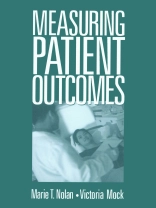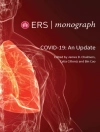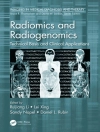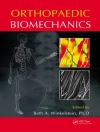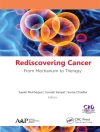One of the most sought-after topics at the recent regional nursing research conference was outcomes measurement and research. Authors, Marie T. Nolan and Victoria Mock give a basic introduction to patient outcomes measurement. Measuring Patient Outcomes book is divided into two sections: the first section provides an overview of the patient outcomes measurement process (identification of outcomes, use of an SPSS data file, common statistical methods for measuring outcomes, data entry, presentation of outcomes); and the second comprises a variety of case examples of patient outcomes measurement.
İçerik tablosu
PART ONE: THE PROCESS OF PATIENT OUTCOMES MANAGEMENT
The Identification of Patient Outcomes – Marie T Nolan and Victoria Mock
Selection of Instruments to Measure Outcomes and Planning for Data Management – Victoria Mock and Marie T Nolan
Creation and Manipulation of SPSS Data Files – Marie T Nolan
Overview of Statistical Methods for Measuring Patient Outcomes – Victoria Mock
Persuasive Presentation of Patient Outcomes Graphics – Marie T Nolan
Scanning Technology to Automate Data Entry – Laura J Burke and Barbara F Gaegelow
PART TWO: CASE STUDIES IN PATIENT OUTCOMES MANAGEMENT
Acute Care
Factors Associated with Leg Graft Wound Complications Following Coronary Artery Bypass – Maura A Goldsborough
Evaluation of the Effect of a Critical Pathway for Patients Undergoing Coronary Artery Bypass Graft – Suzanne J Rumble, Marinell H Jernigan and Pamela T Rudisill
Quality of Life Following the Whipple Procedure – Jo Ann Coleman
Precursors of Patient Seclusion in a Psychiatric Patient Population – Donna Brannan and Judith M Rohde
Maternal/Child Care
Outcomes of Early Hospital Discharge of Women Undergoing Abdominal Hysterectomy – Andrea O Hollingsworth and Susan M Cohen
Swimming and Central Venous Catheter-Related Infections in Children with Cancer – Jacqueline Robbins, Philene Cromwell and David N Korones
Primary Care
Measurement of Urinary Continence Recovery Following Radical Prostatectomy – Penny Marschke
A Clinical Outcomes Study to Evaluate the Cost-Effectiveness of New Anti-Emetic Guidelines to Manage Chemotherapy-Related Nausea and Vomiting – Christine A Engstrom
Yazar hakkında
Dr. Marie T. Nolan is internationally renowned for her work on patient and family decision making in the face of critical illness. Her research focuses on the decision-making process at the end of life and on decisions regarding living organ donation, key issues in both clinical care and bioethics. Her pioneering end-of-life research has revealed that instead of the autonomous decision making model prevalent in clinical practice and health care policy, most critically ill patients prefer shared decision making with their family and physician. At Johns Hopkins University School of Nursing, Dr. Nolan chairs the Department of Acute and Chronic Care. She also previously directed the Ph D program and is the Johns Hopkins Director for the first nursing doctoral program in China, a collaboration between Peking Union Medical College and the School funded by the China Medical Board of New York. She is also Advisory Board Member of the International Nursing Doctoral Education Network. Dr. Nolan holds a joint faculty appointment in the Johns Hopkins Berman Institute of Bioethics, is the Evaluation Core Director for the School Center for Collaborative Intervention Research, and has served on advisory panels of the National Institutes of Health regarding end-of-life care research. Widely published in the nursing and multidisciplinary research literature, Dr. Nolan has edited two books, Measuring Patient Outcomes (2000) and Transplantation Nursing: Acute and Long-term Management (1995).
